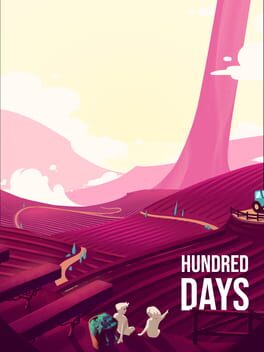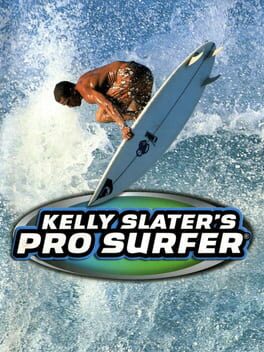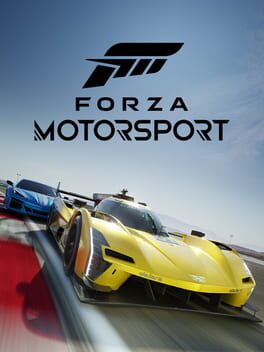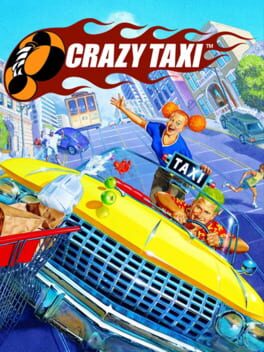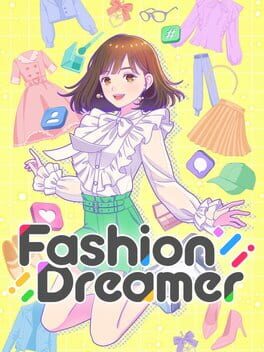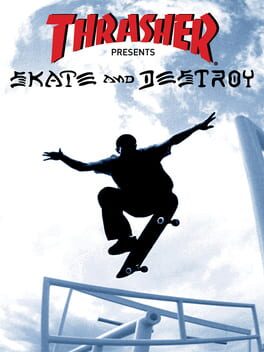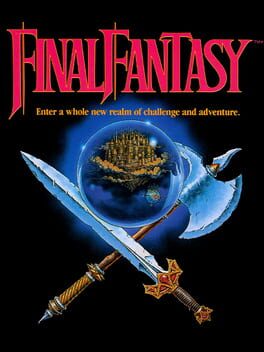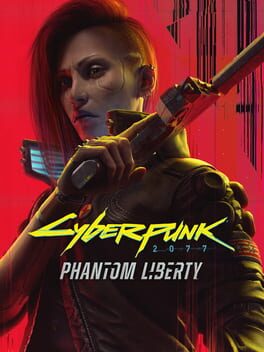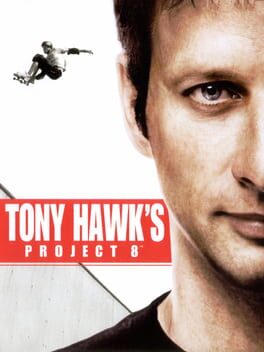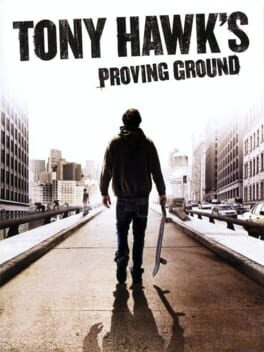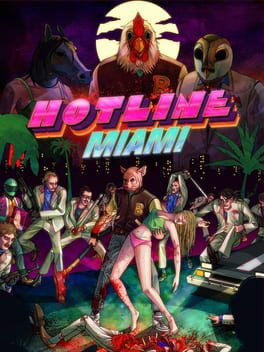largebagofrocks
2021
2007
This review contains spoilers
i love suda51’s aesthetic to death, and he is truly showing his whole ass with this game as far as his influences/taste/proclivities are concerned - i too love pro wrestling and anime and punk rock and otaku shit, so this game really speaks to me on that level. i also respect and enjoy what the game is going for with its story and structure, i love the art style and i really enjoy the characters and general vibe of santa destroy.
but… this just feels like absolute shit to play. this is, in some ways, the point - suda and grasshopper are seeking to perform a meta-commentary on the tedium/repetition of playing games, which comes across fairly well.
the problem with this approach is the ‘spec ops: the line problem’: even though you’ve included something in your game with the intention of commenting on it, at the end of the day you’ve still included that thing in your game. with spec ops, that involves the game commenting on how awful the mass murder enacted by the ‘heroes’ of military shooters by having you do a whole lot of murder in a military shooter. here, suda and grasshopper have made a game that is frustrating and repetitive to play as a way of commenting on video games as a form, but it’s also still another frustrating, repetitive video game.
but… this just feels like absolute shit to play. this is, in some ways, the point - suda and grasshopper are seeking to perform a meta-commentary on the tedium/repetition of playing games, which comes across fairly well.
the problem with this approach is the ‘spec ops: the line problem’: even though you’ve included something in your game with the intention of commenting on it, at the end of the day you’ve still included that thing in your game. with spec ops, that involves the game commenting on how awful the mass murder enacted by the ‘heroes’ of military shooters by having you do a whole lot of murder in a military shooter. here, suda and grasshopper have made a game that is frustrating and repetitive to play as a way of commenting on video games as a form, but it’s also still another frustrating, repetitive video game.
I'm a big fan of search-action games/exploration platformers/whatever term is being used now as an alternative to Metroidvana (which just feels clunky and imprecise to me). Recent favourites of mine like Dead Cells, Metroid Dread, Hollow Knight, and Blasphemous wormed their way into my brain by emphasising everything I most enjoy about video games mechanically. I love the non-linear exploration of a confined space that is meaningfully progression-gated through upgrades and abilities, I love looting items, gear and resources as you grow from initially being fragile and vulnerable to every single threat to eventually becoming so overpowered you are tearing through entire rooms in seconds completely unscathed, and I relish interesting boss battles that act as spikes in difficulty/challenge to keep you on your toes and test your grasp of the games' combat and/or traversal skills.
Despite this, I'd never really played more than a couple hours of Symphony of the Night, which is rightfully regarded as a classic and essentially codified the conventions of this genre (I'd argue that a lot of the bigger Metroidvania games in the past few years have a whole lot more in common with this than with Super Metroid).
Coming to the game 27 years after its initial release I was a bit worried that I'd be hit by the 'Seinfeld is Unfunny' effect; that my enjoyment of this classic would be hampered by my experiences with more recent games directly inspired by SOTN that iterated on the concepts and mechanics that made it feel so ground-breaking at the time it came out.
Thankfully, that wasn't the case at all.
Symphony of the Night feels so good to play, even now, because its core gameplay loop is designed in a way to just keep you on a hamster wheel of dopamine release. You are given system upon (often superfluous) system to engage with which can enrich your experience of the RPG elements of this game, but are arcane enough and hidden enough that they can mostly be ignored if you wish, or missed entirely. The map is progression-gated, opening up as you gradually earn new ways to traverse the environment, while encouraging you to learn the map and the different locations AND to find shortcuts or optimise your paths between key areas to avoid areas that may be difficult or unavailable. The risk of pushing through to a newly discovered area where a boss battle could be awaiting you on the next screen despite you not having saved in a few hours is always thrilling. You are rewarded throughout for exploration in a way that incentivises you to check every nook and cranny, but the gear you find is most always slightly underpowered or not particularly useful, which keeps you on the lookout for better loot.
The gameplay is so great, but the little details and presentation here pushes it into masterpiece territory.
The game is possibly the most beautiful game on the original PlayStation - the 2D art is so beautiful and is wonderfully punctuated by the tasteful use of 3D backgrounds/rotating sprites. The soundtrack is one of the best of all time, with some of the most memorable and fun pieces of music in video games. The whole vibe is campy, silly, and incredibly charming - the bad voice acting, frankly ridiculous plot, and bishonen-as-fuck character portraits are all positives. I'm a sucker for stuff like the confessional booth, the peanut item, the 'alucart' status, the hilarious codex entries in the bestiary, the spells hidden behind Street Fighter controller inputs, turning into a stone gargoyle, Dracula throwing a little wineglass in conversation with Richter, and so many more silly incidental, tiny things that don't impact play very much but add so much charm that heightens the joy of the whole experience - kind of like what Kojima does with the MGS games
(Dumbest guy alive moment here but I really saw how much inspiration FromSoftware have taken from SOTN for the Dark Souls series - they've just replaced all of the campiness with Berserk dark fantasy.)
It's a certified banger, but it's not perfect. The Inverted Castle is, in theory, an incredibly cool idea and is incredibly generous to players (and another example of exploration being rewarded by the devs). The Inverted Castle also introduces a much-needed difficulty spike, has some of the best enemy designs in the game, and has some boss battles that can be absolutely punishing.
However, it becomes clear while actually playing through the Inverted Castle that it pales in comparison to the basically unimpeachable first 'half' of the game. The rooms don't feel as well-designed or thought-out as the first half of the game, and a lot of the environments don't really lend themselves to the flipped castle layout (particularly the Underground Caverns). It doesn't help that all of the traversal items you've accumulated by this point allow you to break or bypass a lot of the challenges that the game has thrown at you, so the developers have resorted to stuffing rooms with harassment enemies and knockback damage to stop you flying through them. This approach feels incredibly cheap, poorly tuned, and comes across a quick band-aid solution to players being able to fly over everything. The rewards that are doled out during this part of the game are also less interesting; at this point, you've effectively gotten all of the major traversal upgrades (barring one incredibly sick skill), you've probably got a good set of gear you're happy with, and the armour you're finding is based around the different status effects/damage types, which aren't really necessary to design your build around aside from a few optional boss battles. The majority of the loot you find is single-use weapons and stat potions that ended up being pointless inventory filler for me.
Take these criticisms with a grain of salt, though. I managed to get the Crissaegrim in the Inverted Castle by pure chance without having to farm Schmoos, and this weapon's reputation as a game-breaker is entirely accurate. I began blasting through rooms at a quick pace - this, in a way, mitigated the fatigue I was starting to have at this point going through the same rooms again and again, but it also meant that I didn't really have to bother optimising my character's stats and gear and kinda just breezed through the end of the game.
Those few quibbles aside, Symphony of the Night remains a deeply enjoyable and entrancing experience that I'm glad I finally got around to playing, and is the kind of comfort game like Link to the Past that I can see myself returning to again and again.
Despite this, I'd never really played more than a couple hours of Symphony of the Night, which is rightfully regarded as a classic and essentially codified the conventions of this genre (I'd argue that a lot of the bigger Metroidvania games in the past few years have a whole lot more in common with this than with Super Metroid).
Coming to the game 27 years after its initial release I was a bit worried that I'd be hit by the 'Seinfeld is Unfunny' effect; that my enjoyment of this classic would be hampered by my experiences with more recent games directly inspired by SOTN that iterated on the concepts and mechanics that made it feel so ground-breaking at the time it came out.
Thankfully, that wasn't the case at all.
Symphony of the Night feels so good to play, even now, because its core gameplay loop is designed in a way to just keep you on a hamster wheel of dopamine release. You are given system upon (often superfluous) system to engage with which can enrich your experience of the RPG elements of this game, but are arcane enough and hidden enough that they can mostly be ignored if you wish, or missed entirely. The map is progression-gated, opening up as you gradually earn new ways to traverse the environment, while encouraging you to learn the map and the different locations AND to find shortcuts or optimise your paths between key areas to avoid areas that may be difficult or unavailable. The risk of pushing through to a newly discovered area where a boss battle could be awaiting you on the next screen despite you not having saved in a few hours is always thrilling. You are rewarded throughout for exploration in a way that incentivises you to check every nook and cranny, but the gear you find is most always slightly underpowered or not particularly useful, which keeps you on the lookout for better loot.
The gameplay is so great, but the little details and presentation here pushes it into masterpiece territory.
The game is possibly the most beautiful game on the original PlayStation - the 2D art is so beautiful and is wonderfully punctuated by the tasteful use of 3D backgrounds/rotating sprites. The soundtrack is one of the best of all time, with some of the most memorable and fun pieces of music in video games. The whole vibe is campy, silly, and incredibly charming - the bad voice acting, frankly ridiculous plot, and bishonen-as-fuck character portraits are all positives. I'm a sucker for stuff like the confessional booth, the peanut item, the 'alucart' status, the hilarious codex entries in the bestiary, the spells hidden behind Street Fighter controller inputs, turning into a stone gargoyle, Dracula throwing a little wineglass in conversation with Richter, and so many more silly incidental, tiny things that don't impact play very much but add so much charm that heightens the joy of the whole experience - kind of like what Kojima does with the MGS games
(Dumbest guy alive moment here but I really saw how much inspiration FromSoftware have taken from SOTN for the Dark Souls series - they've just replaced all of the campiness with Berserk dark fantasy.)
It's a certified banger, but it's not perfect. The Inverted Castle is, in theory, an incredibly cool idea and is incredibly generous to players (and another example of exploration being rewarded by the devs). The Inverted Castle also introduces a much-needed difficulty spike, has some of the best enemy designs in the game, and has some boss battles that can be absolutely punishing.
However, it becomes clear while actually playing through the Inverted Castle that it pales in comparison to the basically unimpeachable first 'half' of the game. The rooms don't feel as well-designed or thought-out as the first half of the game, and a lot of the environments don't really lend themselves to the flipped castle layout (particularly the Underground Caverns). It doesn't help that all of the traversal items you've accumulated by this point allow you to break or bypass a lot of the challenges that the game has thrown at you, so the developers have resorted to stuffing rooms with harassment enemies and knockback damage to stop you flying through them. This approach feels incredibly cheap, poorly tuned, and comes across a quick band-aid solution to players being able to fly over everything. The rewards that are doled out during this part of the game are also less interesting; at this point, you've effectively gotten all of the major traversal upgrades (barring one incredibly sick skill), you've probably got a good set of gear you're happy with, and the armour you're finding is based around the different status effects/damage types, which aren't really necessary to design your build around aside from a few optional boss battles. The majority of the loot you find is single-use weapons and stat potions that ended up being pointless inventory filler for me.
Take these criticisms with a grain of salt, though. I managed to get the Crissaegrim in the Inverted Castle by pure chance without having to farm Schmoos, and this weapon's reputation as a game-breaker is entirely accurate. I began blasting through rooms at a quick pace - this, in a way, mitigated the fatigue I was starting to have at this point going through the same rooms again and again, but it also meant that I didn't really have to bother optimising my character's stats and gear and kinda just breezed through the end of the game.
Those few quibbles aside, Symphony of the Night remains a deeply enjoyable and entrancing experience that I'm glad I finally got around to playing, and is the kind of comfort game like Link to the Past that I can see myself returning to again and again.
1994
Pretty obviously an attempt by Activision to cash-in on the success of the Tony Hawk Pro Skater series, but Neversoft do the most they can with the concept. I quite enjoy the reverential tone of the FMV that accompanies each different level, and it's clear that the developers have tried to imbue the game with a deep appreciation and respect for surf culture.
The actual gameplay is a solid riff on the THPS formula - you're landing tricks and building longer combos with bigger point multipliers to earn higher scores within a time limit. Landing tricks fills up your special meter, which allows you to attempt more complex tricks with bigger scores attached. Each level has specific objectives to complete, such as requiring you to land specific tricks in sequence, reach a high score, or hit different objects in the level.
The game controls much the same too - launching airs, grabs, and spins off the top of a wave is achieved the same way as launching off a quarter pipe in THPS, so any muscle memory of playing those games should help here.
Neversoft have obviously had to make some tweaks to the gameplay to better fit what surfing is like in real life, and they work quite well. Carving along the face of the wave (called 'face' tricks) is essentially your way of performing a revert/manual trick to extend your combos, riding inside the tube of a wave takes the place of grinds/lip tricks (balance meter and all), and there's a much greater emphasis placed on landing 'perfect' rotations for your airs. It's a little forced, but for the most part it works, and I actually really enjoy the moment-to-moment gameplay.
However, the THPS games are so good (in my opinion) because the levels are designed to include a variety of obstacles laid out in a way that allows players to chain combos together in creative and interesting ways. Those games are essentially platformers, and the joy of traversing levels like Airport, Bull Ring, School II and Foundry comes from the creative goals, interesting backdrops, and weird secrets which provide variety to gameplay that doesn't really add too many wrinkles in terms of new late-game mechanics or challenges.
Instead, Kelly Slater's Pro Surfer has... a bunch of beaches. Iconic real-life beaches, to be sure, each with little quirks such as levels of swell, tube patterns, and a few obstacles, but nothing close to the variety of THPS maps. You're constrained to what is, essentially, a single quarter pipe for you to ride, and it gets boring very quickly.
There are other gripes - the controls aren't as precise, the camera is absolutely dreadful and actively makes some goals more difficult than necessary, and the balance in tubes definitely needed some fine-tuning. There are positives as well - the game runs at a smooth 60FPS, the game remains pretty challenging, there's some incredibly silly secret characters, and the soundtrack's few tracks eschew the expected rap/punk/metal of a THPS game in favour of drum n bass, folk, indie rock and some almost lo-fi hip hop beat type stuff. But the game cannot overcome the fundamental flaw that navigating one obstacle over and over again is just not very fun over hours of play.
It's not really the developers' fault, as it's a problem that's built into the games' premise: a wave, no matter how dynamic it may be, will never be as interesting as a skate park, factory, or school, let alone the theme park facsimiles of entire cities or countries that the THPS series would include. But that doesn't mean I have to think it's very good.
The actual gameplay is a solid riff on the THPS formula - you're landing tricks and building longer combos with bigger point multipliers to earn higher scores within a time limit. Landing tricks fills up your special meter, which allows you to attempt more complex tricks with bigger scores attached. Each level has specific objectives to complete, such as requiring you to land specific tricks in sequence, reach a high score, or hit different objects in the level.
The game controls much the same too - launching airs, grabs, and spins off the top of a wave is achieved the same way as launching off a quarter pipe in THPS, so any muscle memory of playing those games should help here.
Neversoft have obviously had to make some tweaks to the gameplay to better fit what surfing is like in real life, and they work quite well. Carving along the face of the wave (called 'face' tricks) is essentially your way of performing a revert/manual trick to extend your combos, riding inside the tube of a wave takes the place of grinds/lip tricks (balance meter and all), and there's a much greater emphasis placed on landing 'perfect' rotations for your airs. It's a little forced, but for the most part it works, and I actually really enjoy the moment-to-moment gameplay.
However, the THPS games are so good (in my opinion) because the levels are designed to include a variety of obstacles laid out in a way that allows players to chain combos together in creative and interesting ways. Those games are essentially platformers, and the joy of traversing levels like Airport, Bull Ring, School II and Foundry comes from the creative goals, interesting backdrops, and weird secrets which provide variety to gameplay that doesn't really add too many wrinkles in terms of new late-game mechanics or challenges.
Instead, Kelly Slater's Pro Surfer has... a bunch of beaches. Iconic real-life beaches, to be sure, each with little quirks such as levels of swell, tube patterns, and a few obstacles, but nothing close to the variety of THPS maps. You're constrained to what is, essentially, a single quarter pipe for you to ride, and it gets boring very quickly.
There are other gripes - the controls aren't as precise, the camera is absolutely dreadful and actively makes some goals more difficult than necessary, and the balance in tubes definitely needed some fine-tuning. There are positives as well - the game runs at a smooth 60FPS, the game remains pretty challenging, there's some incredibly silly secret characters, and the soundtrack's few tracks eschew the expected rap/punk/metal of a THPS game in favour of drum n bass, folk, indie rock and some almost lo-fi hip hop beat type stuff. But the game cannot overcome the fundamental flaw that navigating one obstacle over and over again is just not very fun over hours of play.
It's not really the developers' fault, as it's a problem that's built into the games' premise: a wave, no matter how dynamic it may be, will never be as interesting as a skate park, factory, or school, let alone the theme park facsimiles of entire cities or countries that the THPS series would include. But that doesn't mean I have to think it's very good.
2023
1999
2023
I love what this is going for - a more realistic skateboarding sim that drops you in legendary skate spots (EMB, China Banks, Brooklyn Banks, LA ditches) and asks you to think about your run, the path you take, and what tricks you can attempt and pull off to max out your score before having to escape the cops. It gets closer to imitating the experience of IRL street skating by putting you into a similar frame of mind that figuring to how to skate a spot asks of you.
Unfortunately, the physics, the controls, and general feel of the gameplay lets this game down. L1 + Square + Up to nail a manual? Triangle and circle to try a frontside flip? L1 + X + Down for a bluntslide? Absolutely nonsensical. Skate sims would get much better about this starting with the Skate series, using the analogue sticks to approximate your skater's footwork, and recent games like Session and Skater XL tweak this approach to allow you to get really granular with your virtual skating in much more interesting, expressive ways. Coming back to this is really difficult now that we have those games, but this game at least has a vibe and an attitude that the newer skate indies don't really have imo. One of those 'respect more than I enjoy' type games for sure.
Unfortunately, the physics, the controls, and general feel of the gameplay lets this game down. L1 + Square + Up to nail a manual? Triangle and circle to try a frontside flip? L1 + X + Down for a bluntslide? Absolutely nonsensical. Skate sims would get much better about this starting with the Skate series, using the analogue sticks to approximate your skater's footwork, and recent games like Session and Skater XL tweak this approach to allow you to get really granular with your virtual skating in much more interesting, expressive ways. Coming back to this is really difficult now that we have those games, but this game at least has a vibe and an attitude that the newer skate indies don't really have imo. One of those 'respect more than I enjoy' type games for sure.
1987
I've only beaten a few of the Final Fantasy games, so I've decided to dive in and try and get through as many of them as I can, starting with the very first. Surprisingly, FF1 isn't as difficult to go back to as someone who doesn't have a lot of classic JRPG experience, but it isn't particularly approachable either.
There's some old video game jank, some glitches and bugs, and some straight up poor design decisions - the monk class was a straight-up liability to my party even in late-game encounters, and why you can't see stats for new gear before you buy it is beyond me. But I actually quite enjoyed the dungeon crawling here - everything feels dangerous, combat requires forethought and strategy, and you have to carefully manage resources in the fairly long dungeons.
The music was great, but otherwise this doesn't feel much like the Final Fantasy series just yet, with the enemies, gear, and story (the ridiculous-but-great late-game twist aside) more closely resembling classic D&D or standard fantasy. I'm excited to see when the series properly grows into what you expect when you think of Final Fantasy.
There's some old video game jank, some glitches and bugs, and some straight up poor design decisions - the monk class was a straight-up liability to my party even in late-game encounters, and why you can't see stats for new gear before you buy it is beyond me. But I actually quite enjoyed the dungeon crawling here - everything feels dangerous, combat requires forethought and strategy, and you have to carefully manage resources in the fairly long dungeons.
The music was great, but otherwise this doesn't feel much like the Final Fantasy series just yet, with the enemies, gear, and story (the ridiculous-but-great late-game twist aside) more closely resembling classic D&D or standard fantasy. I'm excited to see when the series properly grows into what you expect when you think of Final Fantasy.
even setting aside the general gameplay improvements and adjustments offered by the free 2.0 update released alongside this expansion, phantom liberty is an incredible distillation of the great parts of cyberpunk 2077's main game, particularly its core narrative and main quests. CDPR have doubled down on the spy thriller and hard-boiled detective influences and more strongly integrated them into this shorter, better paced narrative that is bleak, upsetting, and trading in moral ambiguities without being edgy or straight-up exploitative (thinking of evelyn parker specifically). the majority of the new characters it introduces and giving the player reasons to trust AND doubt them all equally, bringing this almost in line with a cyberpunk version of a 70s paranoia thriller. the conclusion(s) of the story here are brilliant and frankly heartbreaking regardless of the path your V takes, and they integrate pretty neatly with the plot and the overarching themes of the game's broader narrative.
the side quests and gigs are great also, giving you more reasons to explore and traverse an interesting new environment packed with detail and character. dogtown is so interesting, with a unique vibe that builds on the paranoia of the expansion's narrative and a greater focus on verticality in its design, which becomes really interesting in combat encounters. my build was focused on mantis blades, throwing knives and hacking, and the dashing and jumping around as a silent whirlwind of death while managing my stamina and RAM felt absolutely incredible. i like that the gigs here have a greater focus on storytelling, and that they provide more opportunities for you to roleplay and think about how your V would approach a situation. i love that, for the most part, these choices don't impact mission rewards or lock you out of other content - removing the stakes from these decisions means you undercut a certain kind of player's desire to savescum for the 'best' outcome and let them focus on roleplaying.
my only complaint is the pacing of the main quests can be a little odd - i know why CDPR do the whole 'wait a few ingame days for x to contact you so you can do the next mission' and i appreciate the highlighting of the great content just off the critical path, but they just end up feeling like artificial roadblocks that have the effect of killing all of the momentum built by the excellent main quests.
still, i hope that CDPR take the approach to phantom liberty into whatever the next cyberpunk game is, because this is exactly what i wanted 2077 to be.
the side quests and gigs are great also, giving you more reasons to explore and traverse an interesting new environment packed with detail and character. dogtown is so interesting, with a unique vibe that builds on the paranoia of the expansion's narrative and a greater focus on verticality in its design, which becomes really interesting in combat encounters. my build was focused on mantis blades, throwing knives and hacking, and the dashing and jumping around as a silent whirlwind of death while managing my stamina and RAM felt absolutely incredible. i like that the gigs here have a greater focus on storytelling, and that they provide more opportunities for you to roleplay and think about how your V would approach a situation. i love that, for the most part, these choices don't impact mission rewards or lock you out of other content - removing the stakes from these decisions means you undercut a certain kind of player's desire to savescum for the 'best' outcome and let them focus on roleplaying.
my only complaint is the pacing of the main quests can be a little odd - i know why CDPR do the whole 'wait a few ingame days for x to contact you so you can do the next mission' and i appreciate the highlighting of the great content just off the critical path, but they just end up feeling like artificial roadblocks that have the effect of killing all of the momentum built by the excellent main quests.
still, i hope that CDPR take the approach to phantom liberty into whatever the next cyberpunk game is, because this is exactly what i wanted 2077 to be.
Turns out the PS3/X360 release is sort of a totally different game to the PS2 version I played (and kinda hated) as a kid? Having played a fair chunk of this, and a bit of the PS2 version as well to compare, this version is a lot better... but I don't know if it's actually good.
There are a lot of weird choices made in this game, chief among them is the arbitrary subculture-based restriction of the create-a-skater system. Limiting clothing, body, and other customisation by a skating equivalent of an RPG class system is a massive step down from previous games and limits the kind of creativity you could have in creating your little skater avatar, seemingly for no real reason. I'm not expecting a post-Jackassification THPS game to be a beacon of progressiveness, but it is kinda weird that the character categories that we have are 'punk', 'surfer', 'urban' (uhhhh), 'woman' (gross) and 'kid' (what the fuck).
Speaking of Jackassification, this game is very much trying to shift in tone to be closer to a realistic skateboarding game after the Diet Viva La Bam of THUG2 and the playable Jim Phillips/Raymond Pettibon cartoon that was American Wasteland (for what it's worth, I think the 80's hardcore -inspired style of THAW and the game in general absolutely rules). In hindsight, this reads as a pre-emptive reaction to EA's skate series. The first skate game would come out within a year of Project 8 and would go on to absolutely eat THPS's lunch. After so many years of annual sequel churn from the THPS series, skate felt fresh with its more realistic aesthetic inspired by then-current core skate culture and its analogue stick-flicking control scheme being a closer simulacrum of the mechanics of skateboard than the arcade-y abstraction of the THPS games.
I admire Project 8 for trying something different, but the end result is that extra systems are just piled on top of each other to the point that it weighs down and dilutes the thing that felt so good about THPS, the rapid-fire precision with which you could navigate it's levels.
There's other weird shit here as well. This game features a truly staggering level of product placement (check out your sweet Nokia video phone!), a Skyrim-esque stat levelling system that discourages exploration, and way too much My Name is Earl-era Jason Lee (vastly inferior to Video Days-era x and even Mallrats-era Lee). The skater ranking system feels totally inscrutable and arbitrary as to when and how you progress up the rankings, and it means that completing the punishingly difficult upper tiers of most challenges never really feels worth it. Not being able to fast travel directly to different missions is an obvious choice made to encourage your engagement with the open world, but it's incredibly frustrating when the levels are as unintuitive to navigate as these are. The bail animations feel slower to complete than previous games, and this really punishes you in time-restricted missions like the filmer challenges where bailing feels like it takes even longer somehow. Even something as small as changing the position of the 'restart mission' button on the pause menu from the first option to the second option has a massive impact on the flow of gameplay - at higher levels of play, any friction introduced in quickly restarting a mission just builds frustration more and more.
Worst of all, this has maybe the worst soundtrack in the series thus far. It's not totally devoid of bangers, and they clearly spent a shitload on licensing massive artists for this game. There's great tracks from Nine Inch Nails, Jaylib, Black Mountain, Liquid Liquid, Primus and +44, and absolute classics from Slayer, Joy Division, Sonic Youth, Ramones, and Toots and the Maytalls. I'd even wager that Project 8 has more great songs than the PS1 games could even fit onto their discs, but the overall package feels weighed down with filler (I don't need to hear any of Mike Vallely's music ever again), completely bizarre-in-a-bad-way choices, an almost total lack of good hip-hop and a complete lack of character that even the most cringe THPS games had in the soundtrack (THUG2's use of Sinatra, Johnny Cash, and The Doors was fucking inspired). There are loads of big names, but it doesn't feel as curated.
Zoom out from the soundtrack, and that sentiment resonates broadly across this entire game. There is money, talent, and gameplay pedigree here that means this game isn't entirely bad per se, but to quote the game's soundtrack, "it's gone daddy gone, the love is gone".
There are a lot of weird choices made in this game, chief among them is the arbitrary subculture-based restriction of the create-a-skater system. Limiting clothing, body, and other customisation by a skating equivalent of an RPG class system is a massive step down from previous games and limits the kind of creativity you could have in creating your little skater avatar, seemingly for no real reason. I'm not expecting a post-Jackassification THPS game to be a beacon of progressiveness, but it is kinda weird that the character categories that we have are 'punk', 'surfer', 'urban' (uhhhh), 'woman' (gross) and 'kid' (what the fuck).
Speaking of Jackassification, this game is very much trying to shift in tone to be closer to a realistic skateboarding game after the Diet Viva La Bam of THUG2 and the playable Jim Phillips/Raymond Pettibon cartoon that was American Wasteland (for what it's worth, I think the 80's hardcore -inspired style of THAW and the game in general absolutely rules). In hindsight, this reads as a pre-emptive reaction to EA's skate series. The first skate game would come out within a year of Project 8 and would go on to absolutely eat THPS's lunch. After so many years of annual sequel churn from the THPS series, skate felt fresh with its more realistic aesthetic inspired by then-current core skate culture and its analogue stick-flicking control scheme being a closer simulacrum of the mechanics of skateboard than the arcade-y abstraction of the THPS games.
I admire Project 8 for trying something different, but the end result is that extra systems are just piled on top of each other to the point that it weighs down and dilutes the thing that felt so good about THPS, the rapid-fire precision with which you could navigate it's levels.
There's other weird shit here as well. This game features a truly staggering level of product placement (check out your sweet Nokia video phone!), a Skyrim-esque stat levelling system that discourages exploration, and way too much My Name is Earl-era Jason Lee (vastly inferior to Video Days-era x and even Mallrats-era Lee). The skater ranking system feels totally inscrutable and arbitrary as to when and how you progress up the rankings, and it means that completing the punishingly difficult upper tiers of most challenges never really feels worth it. Not being able to fast travel directly to different missions is an obvious choice made to encourage your engagement with the open world, but it's incredibly frustrating when the levels are as unintuitive to navigate as these are. The bail animations feel slower to complete than previous games, and this really punishes you in time-restricted missions like the filmer challenges where bailing feels like it takes even longer somehow. Even something as small as changing the position of the 'restart mission' button on the pause menu from the first option to the second option has a massive impact on the flow of gameplay - at higher levels of play, any friction introduced in quickly restarting a mission just builds frustration more and more.
Worst of all, this has maybe the worst soundtrack in the series thus far. It's not totally devoid of bangers, and they clearly spent a shitload on licensing massive artists for this game. There's great tracks from Nine Inch Nails, Jaylib, Black Mountain, Liquid Liquid, Primus and +44, and absolute classics from Slayer, Joy Division, Sonic Youth, Ramones, and Toots and the Maytalls. I'd even wager that Project 8 has more great songs than the PS1 games could even fit onto their discs, but the overall package feels weighed down with filler (I don't need to hear any of Mike Vallely's music ever again), completely bizarre-in-a-bad-way choices, an almost total lack of good hip-hop and a complete lack of character that even the most cringe THPS games had in the soundtrack (THUG2's use of Sinatra, Johnny Cash, and The Doors was fucking inspired). There are loads of big names, but it doesn't feel as curated.
Zoom out from the soundtrack, and that sentiment resonates broadly across this entire game. There is money, talent, and gameplay pedigree here that means this game isn't entirely bad per se, but to quote the game's soundtrack, "it's gone daddy gone, the love is gone".
2012
